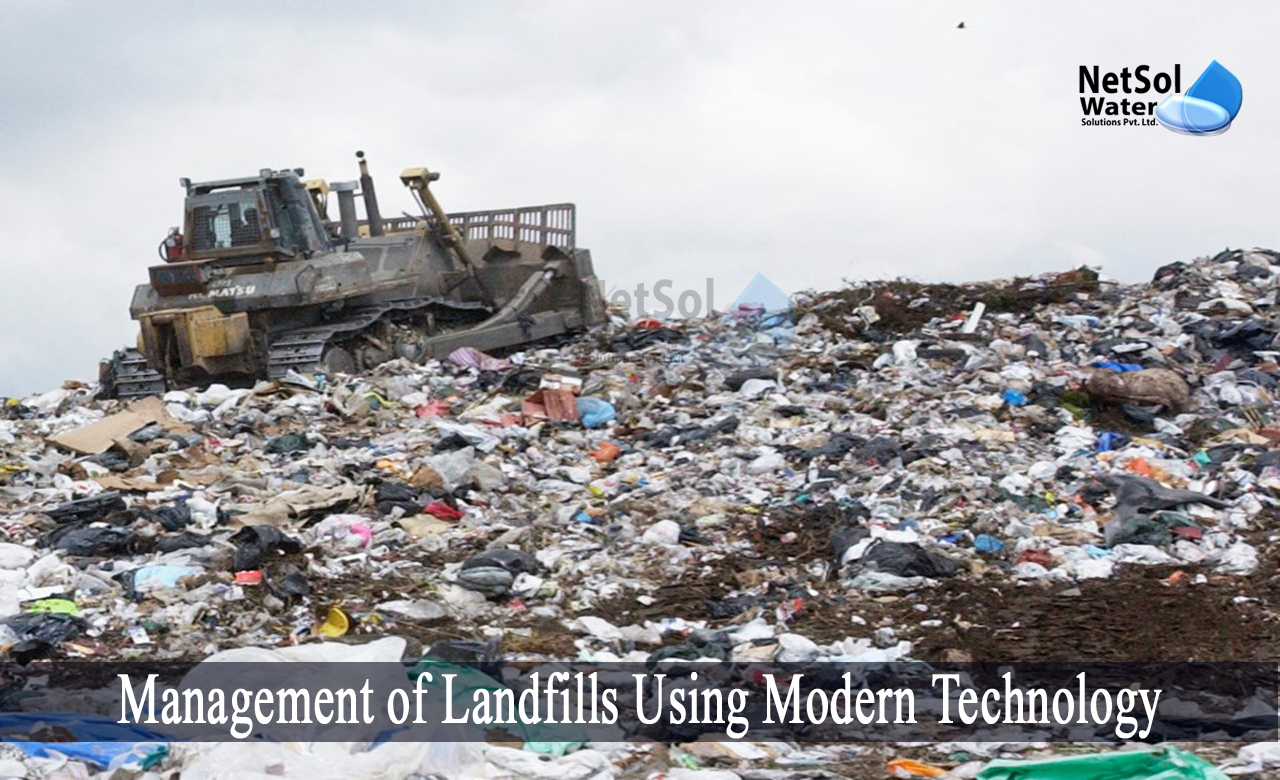Introduction
We all create waste every day, but have you ever wondered what happens to it after the waste or garbage is picked up?
We undoubtedly think of landfills when we consider this. Landfill serves as a place to dispose of waste, and guard against environmental contamination and health dangers. It is one of the most popular techniques for disposing of municipal solid waste. However, environmental pollution results from improper landfill management. Nowadays, landfills need to be managed using modern technologies.
Landfills are not open dumps!
It's vital to keep in mind that these landfills are not open dumps, because they have mechanisms in place to lessen the impact of waste on the environment. Regulations must be followed when it comes to the placement, construction, and operation of landfills.
Additionally, the operations of these landfills are continuously watched for any indication, of groundwater contamination and landfill gas.Particularly engineered landfills, which need highly qualified personnel and professional design, may be deemed beneficial for the environment. If properly managed, it will result in effective disposal.
What are the different kinds of landfills?
There are typically three sorts of landfills.
1: Residential waste and some other non-hazardous wastes can be dumped in municipal solid waste (MSW) dumps. Bioreactors may also be used in these dumps. The link between bioreactor landfill technology and sustainability is growing.
2: Industrial waste landfills are made to take both commercial and industrial waste.
3: The third one is landfills for hazardous waste, which are used to dispose of the garbage in a way, which protects our health and the environment.
What role do landfills play in global warming?
Undoubtedly, landfills have their share of issues. The gas release in landfills, which can cause environmental difficulties and extremely high amounts of greenhouse gas emissions, is perhaps one of the most frequent topics you hear about. There is a possibility to convert this crisis into an opportunity as well.
The question of how to lower landfill methane emissions is crucial!
Additionally, another issue in these locations that might contaminate subsurface waterways is liquid leaks. Workers must be able to capture these liquids. Most likely, we're all thinking the same thing: Can we stop all of these issues?
Yes! We can.
Once again, technological advancements and cutting-edge engineering capabilities can save us. The leakage of liquids or gases is the common factor in both issues, hence this factor needs to be avoided. It is necessary to capture and collect the gas and liquid. Fortunately, technology has enabled us to control all of these emissions before they happen, and we can even turn the gases into electricity!
How to manage Landfills Using Modern Technology?
In contemporary landfills, the waste is buried in compacted, covered tiers, as well as a protected bottom to prevent groundwater contamination. Additionally, the waste should be covered by 0.5 metres of soil, to stop animals from digging it up.
In addition, there have been several technological breakthroughs in monitoring and tracking landfills, in modern and constructed landfills. These have a one-liner system at the bottom and a leachate removal system for groundwater monitoring, and gas extraction on the sides. Furthermore, the location of the dump is chosen using a risk management system, which evaluates the danger.
Additionally, bioreactors are another type of technology that is used.
This method breaks down large organic molecules, like those found in food, paper, and other products, into smaller, less harmful chemicals. We can observe the production of biogases through the operation of bioreactors.
Additionally, these gases can be controlled by correctly collecting them. In some landfill regions, we can see gas gathering systems that produce electricity.
Conclusion
Urban life inevitably generates more waste, and local governments are having a difficult time managing this waste, particularly in landfills.
In order to create a healthier environment and a better life for everyone, we at Netsol Water care about the environment, and provide cutting-edge solutions. Waste management may struggle to keep track of information and monitor these dumps, but we are here to help! With cutting-edge recycling technology, we are prepared to provide best-industry solutions for lowering carbon emissions from landfills.
Netsol Water is Greater Noida-based leading water & wastewater treatment plant manufacturer. We are industry's most demanding company based on client review and work quality. We are known as best commercial RO plant manufacturers, industrial RO plant manufacturer, sewage treatment plant manufacturer, Water Softener Plant Manufacturers and effluent treatment plant manufacturers. Apart from this 24x7 customer support is our USP. Call on +91-9650608473, or write us at enquiry@netsolwater.com for any support, inquiry or product-purchase related query.



